Home
Heights for AI
Hello and welcome to this website, I am glad you reached here. I am a Machine learning enthusiast and currently deep diving into some of the conceptual topics of Deep Learning. I believe in project based learning so, you would find that most of my blogs revolving around some project or a real world example to understand the topic in more depth.
I have started a series of blogs on Neural networks and currently I am focussing on it. In this series I will try to make understand the beginners about importance of Neural networks and make them understand the conceptual aspects of the same.
This website consists of core understanding of some of the most widely used topics in the the field of deep learning.
Visit my blogs here - Heights For AI
Visit my Github profile here - Hrushi11
Connect with me on Linkedin here - Hrushikesh Kachgunde
Mail me at - [hrushiskachgunde@gmail.com]
Deep Learning with Neural Networks
Deep Learning is learning the deep, in-depth patterns and important features of a dataset. Dataset here means the collection of different kinds of data that we want to study and, predict a result from. The history of Deep Learning can be traced back to 1943 when Walter Pitts and Warren McCulloch created a computer model based on the neural networks of the human brain.
Visit the blog here - Deep Learning with Neural Networks
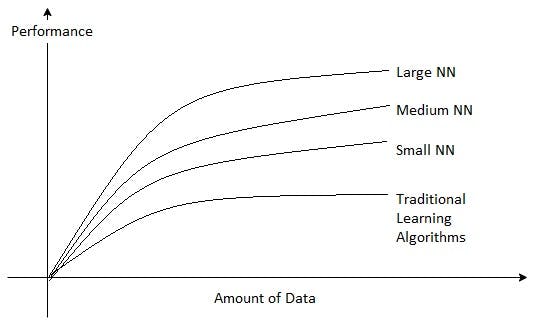
Multi-Class CNN
For this next project in the series we will be dealing with a "multi-class" problem, where the classes to classify are more than 2 and in our case the data set we choose is the Fruits 262 available on Kaggle. Instead of this you can even choose a better arranged data, the Fruits 360 - A dataset with 90380 images of 131 fruits and vegetables.
This data set consists of 262 different types of fruits. This blog is more focused on the code, and covers only the explanation of the important code.
Visit the blog here - Multi-Class CNN


Programming neural networks with tensorflow
Tensorflow is a deeplearning framework used to train deeplearning models easily which is opensource and maintained by google.
This notebook deals with training an end to end neural network. We can train a neural network just by using the numpy library but that's a long and tedious process so for to make this easier we will use tensorflow with the latest version.
For this notebook we will build a simple hand sign classifier with the help of a 3 layered neural network.
Visit the Blog here - Programming neural networks with tensorflow

Regression model with Tensorflow :
In this blog we will train a simple regression model on our own created dataset with tensorflow and try to understand all the concepts in depth.
Regression model : Regression analysis is a form of predictive modelling technique which investigates the relationship between a dependent (target) and independent variable (s) (predictor). This technique is used for forecasting, time series modelling and finding the causal effect relationship between the variables.
Visit the blog here - Regression model with Tensorflow
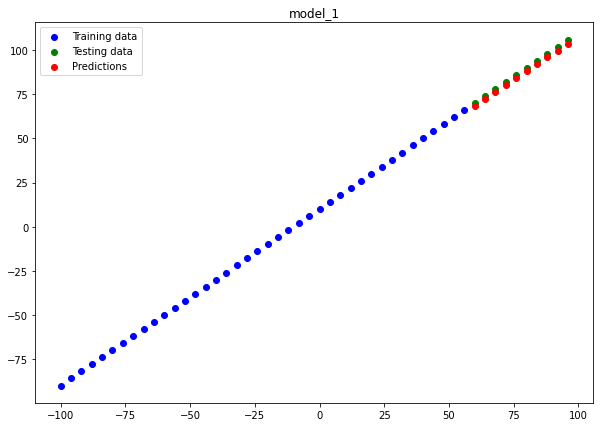
Water Quality
Access to safe drinking-water is essential to health, a basic human right and a component of effective policy for health protection. This is important as a health and development issue at a national, regional and local level. In some regions, it has been shown that investments in water supply and sanitation can yield a net economic benefit, since the reductions in adverse health effects and health care costs outweigh the costs of undertaking the interventions.
Visit the blog here - Water Quality

Vertebrate Detection
Live link for the web - Vertebrate Detector
Vertebrate : An animal of a large group distinguished by the possession of a backbone or spinal column, including mammals, birds, reptiles, amphibians, and fishes.
Visit the blog here - Vertebrate Detection
Vertebrates available : 'Bear', 'Brown bear', 'Bull', 'Butterfly', 'Camel', 'Canary', 'Caterpillar', 'Cattle', 'Centipede', 'Cheetah', 'Chicken', 'Crab', 'Crocodile', 'Deer', 'Duck', 'Eagle', 'Elephant', 'Fish', 'Fox', 'Frog', 'Giraffe', 'Goat', 'Goldfish', 'Goose', 'Hamster', 'Harbor seal', 'Hedgehog', 'Hippopotamus', 'Horse', 'Jaguar', 'Jellyfish', 'Kangaroo', 'Koala', 'Ladybug', 'Leopard', 'Lion', 'Lizard', 'Lynx', 'Magpie', 'Monkey', 'Moths and butterflies', 'Mouse', 'Mule', 'Ostrich', 'Otter', 'Owl', 'Panda', 'Parrot', 'Penguin', 'Pig', 'Polar bear', 'Rabbit', 'Raccoon', 'Raven', 'Red panda', 'Rhinoceros', 'Scorpion', 'Sea lion', 'Sea turtle', 'Seahorse', 'Shark', 'Sheep', 'Shrimp', 'Snail', 'Snake', 'Sparrow', 'Spider', 'Squid', 'Squirrel', 'Starfish', 'Swan', 'Tick', 'Tiger', 'Tortoise', 'Turkey', 'Turtle', 'Whale', 'Woodpecker', 'Worm', 'Zebra'
The model got an accuracy of about 80% on test data.
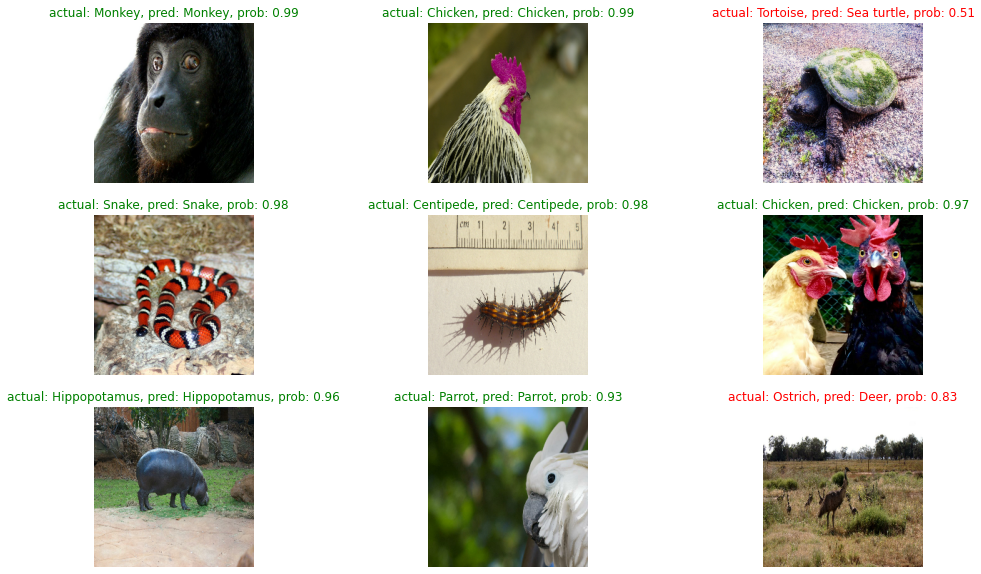
Flowers Recognition
Live link for the Web - Flower Recognition
Context : This dataset contains 4242 images of flowers. The data collection is based on the data flicr, google images, yandex images. You can use this datastet to recognize plants from the photo.
Visit the blog here - Flowers Recognition
Content : The pictures are divided into five classes: chamomile, tulip, rose, sunflower, dandelion. For each class there are about 800 photos. Photos are not high resolution, about 320x240 pixels. Photos are not reduced to a single size, they have different proportions!
Predicting the flower from given classes : 'daisy', 'dandelion', 'rose', 'sunflower', 'tulip'
Data : Flowers Recognition Dataset
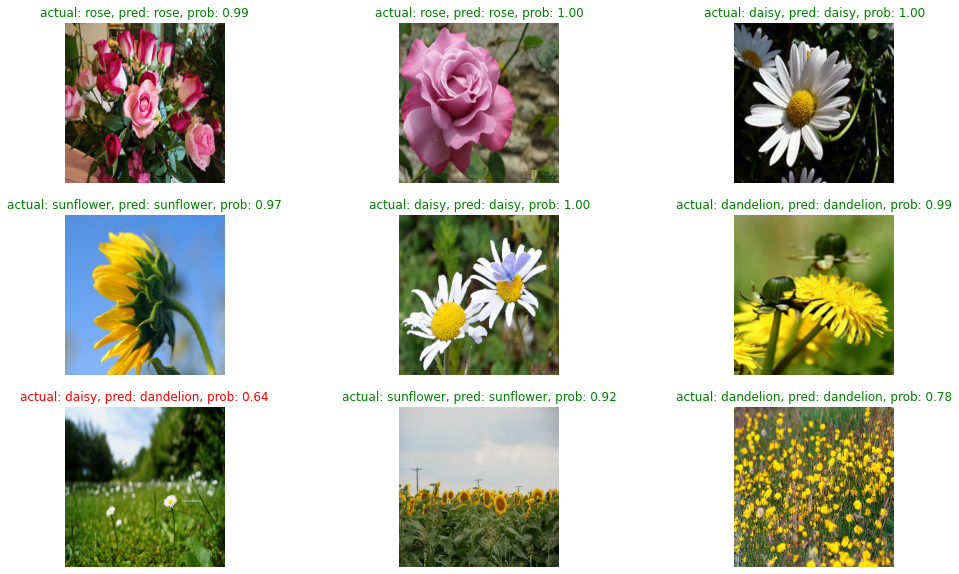
Butterfly Recognition
Live link for the Web - Butterfly Recognition
Train, Test. Validation data set for 50 butterfly species. All images are 224 X 224 X 3 in jpg format . Train set consists of 4955 images partitioned into 50 sub directories one for each species. Test set consists of 250 images partitioned into 50 sub directories with 5 test images per species. Valid set consists of 250 images partitioned into 50 sub directories with 5 validation images per species. 1 CSV file is included with 3 columns filepaths, labels and dataset. filepaths is the relative path to an image. labels is the string name of the species associate with the image file. dataset species the directory (train, test, valid) that contains the image file.
Visit the blog here - Butterfly Recognition
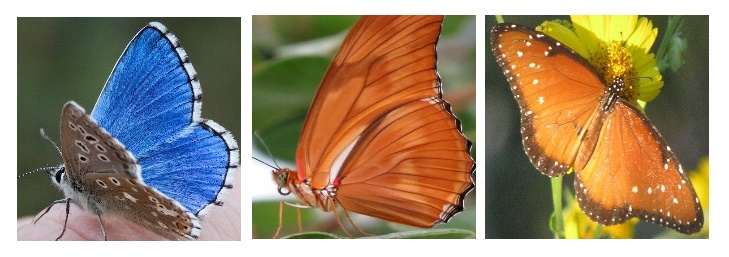
The model classifies for the given classes - 'adonis','american snoot','an 88','banded peacock','beckers white','black hairstreak', 'cabbage white','chestnut','clodius parnassian','clouded sulphur','copper tail','crecent','crimson patch','eastern coma','gold banded', 'great eggfly','grey hairstreak','indra swallow','julia','large marble','malachite','mangrove skipper','metalmark','monarch','morning cloak', 'orange oakleaf','orange tip','orchard swallow','painted lady','paper kite','peacock','pine white','pipevine swallow','purple hairstreak','question mark', 'red admiral','red spotted purple','scarce swallow','silver spot skipper','sixspot burnet','skipper','sootywing','southern dogface','straited queen', 'two barred flasher','ulyses','viceroy','wood satyr','yellow swallow tail','zebra long wing'.
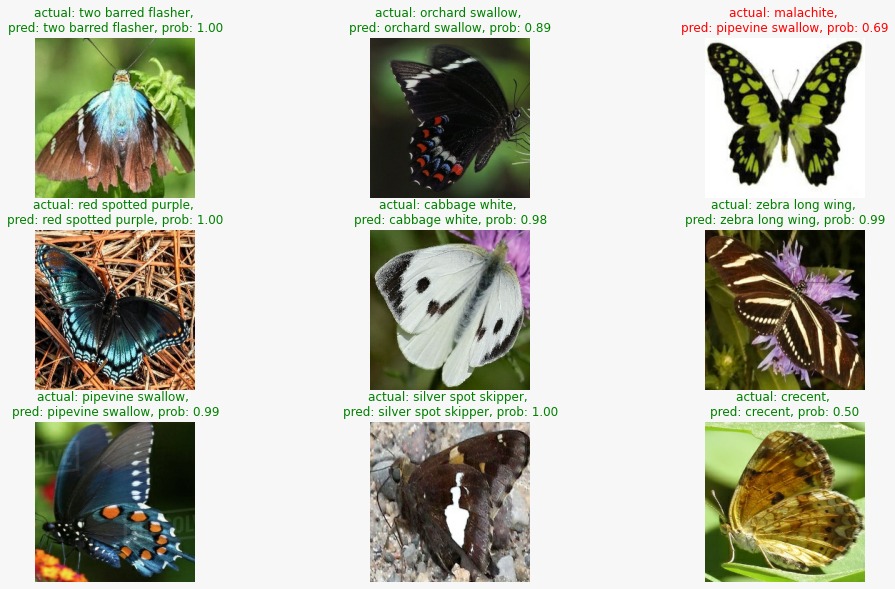
Rock Paper Scissors Game In Python
Creating a python bot that plays the rock paper scissors game with the help of OOP principles in python.
In this blog we will see how to make a python bot playing rock paper scissors with the help of object oriented programming in python. We will be making two files one which will contain the actual logic of the game and another file that will make a call for the bot and run it. We will be also adding some user information for the one playing the game and see how to call functions to see that info.
So without any further waiting lets get into the flow of the code. - Blog
Code for this blog - Rock-Paper-Scissors-Game
def rps_initiate(self):
print("-------------------------------------------")
if int(self.age) >= 3 and self.choice.lower() in rps_labels:
res, user_choice, bot_choice = self.rps_bot()
stmnt = f"{res} \n{self.name} Chose - {user_choice} \nRPS-BOT Chose - {bot_choice}"
else :
stmnt = f"YOU MIGHT BE UNDER-AGE - {self.age} years, or \nyou chose `{self.choice}`,
which might NOT BE IDENTIFIED, RE-CHECK"
return stmnt
Gender Recognition
Gender Recognition CNN model which predicts the gender out of the two classes man and woman with a test accuracy of 91.5%.
The dataset contains 27,167 '.jpg' files which 17 678 of them are photos of men faces and 9 489 are woman photos. Each file is renamed accordingly to it's category E.g. woman0, woman1, woman_2 etc.

Visit the blog here - Gender Recognition
Visit the live web app here - Gender Recognition
Predictions made by the model :
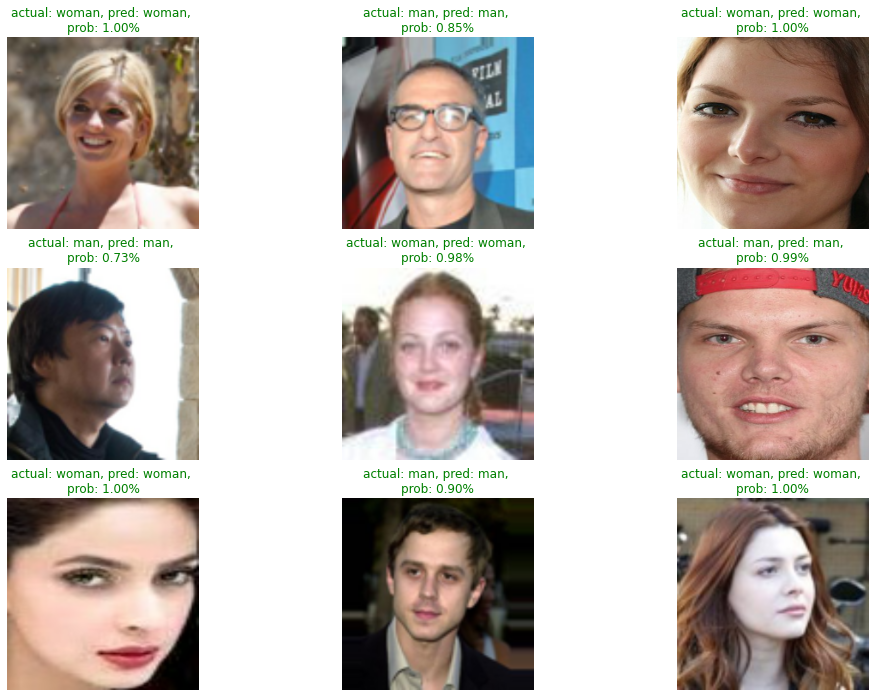
Bird Species Recognition
Data set of 285 bird species.40930 training images, 1425 test images(5 images per species) and 1425 validation images(5 images per species. All images are 224 X 224 X 3 color images in jpg format. Data set includes a train set, test set and validation set. Each set contains 285 sub directories, one for each bird species. The data structure is convenient if you use the Keras ImageDataGenerator.flowfromdirectory to create your train, test and valid data generators.
Visit the blog here - Bird Species Recognition

Predictions made by the model:
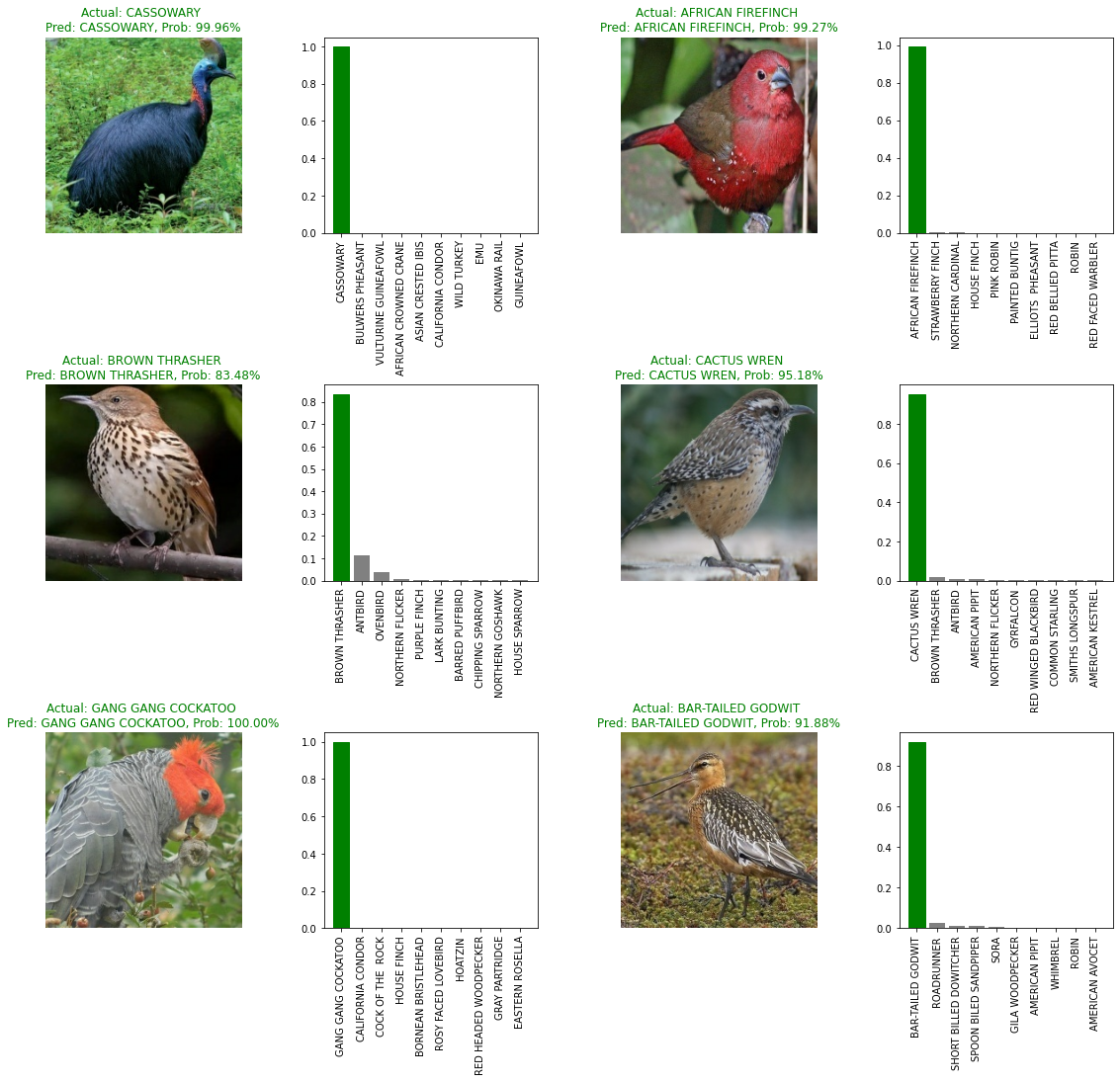
Wrong predictions made by the model:
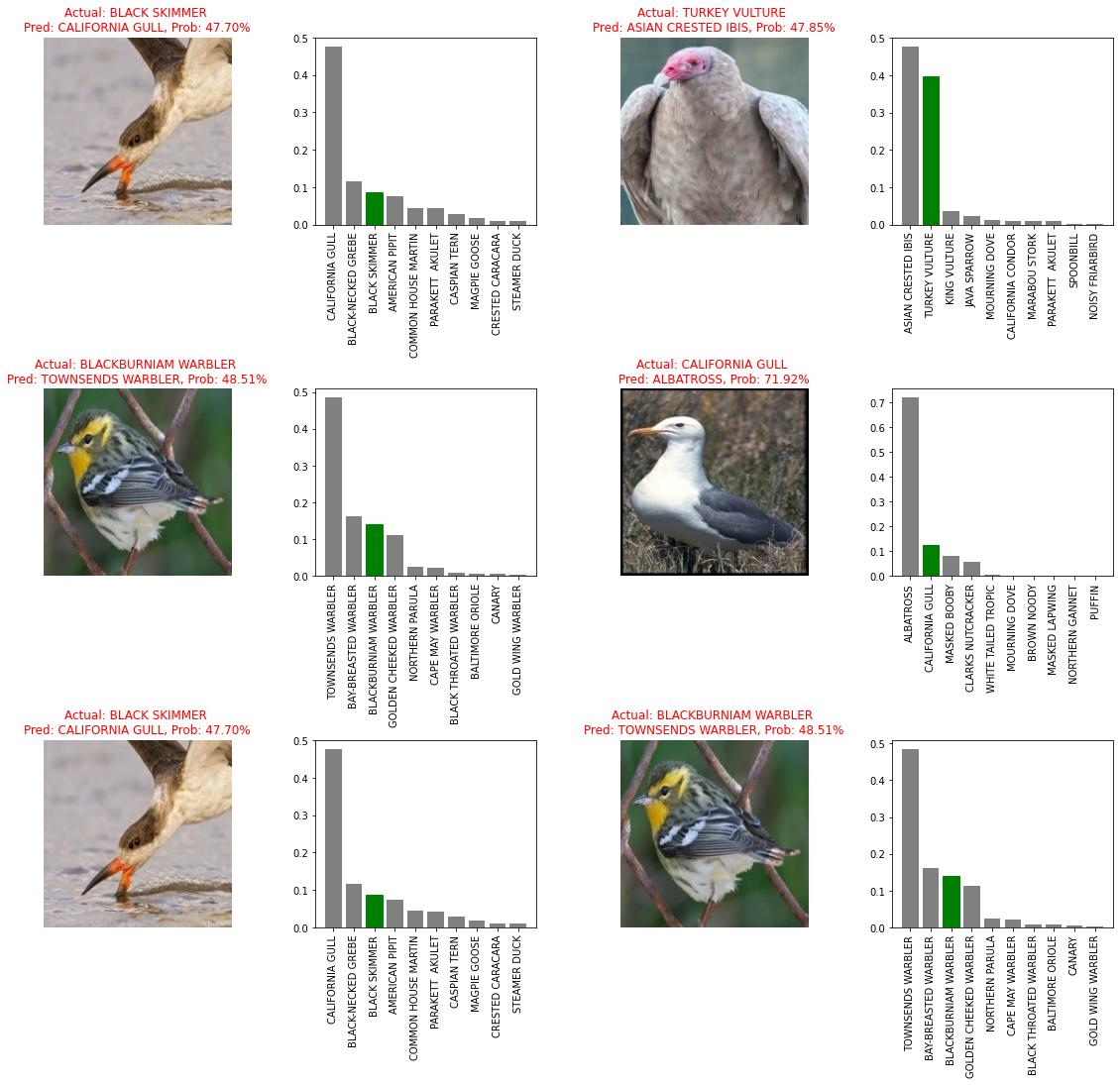
Devnagri Character Recognition
The dataset was created by extraction and manual annotation of thousands of characters from handwritten documents.
Creator Name: Shailesh Acharya, Email: sailes437@gmail.com, Institution: University of North Texas, Cell: +19402200157
Creator Name: Prashnna Kumar Gyawali, Email: gyawali.prasanna@gmail.com, Institution: Rochester Institute of Technology
Data Type: GrayScale Image
Gihub Repo - Devnagri-Character-Recognition
Visit the blog here - Devnagri Character Recognition
The image dataset can be used to benchmark classification algorithm for OCR systems. The highest accuracy obtained in the Test set is 98.15%. Model Description is available in the paper. Image Format: .png Resolution: 32 by 32
Correct Predictions:

Wrong Predictions:

Face Detection OpenCV
Face detection algorithm to recognize and identify faces with OpenCV.
This project deals with identifying the faces and also recognizing the faces with the help of OpenCV.
Also includes identification of faces in a group. Visit the project here - Face Detection
One of the result is shown below :